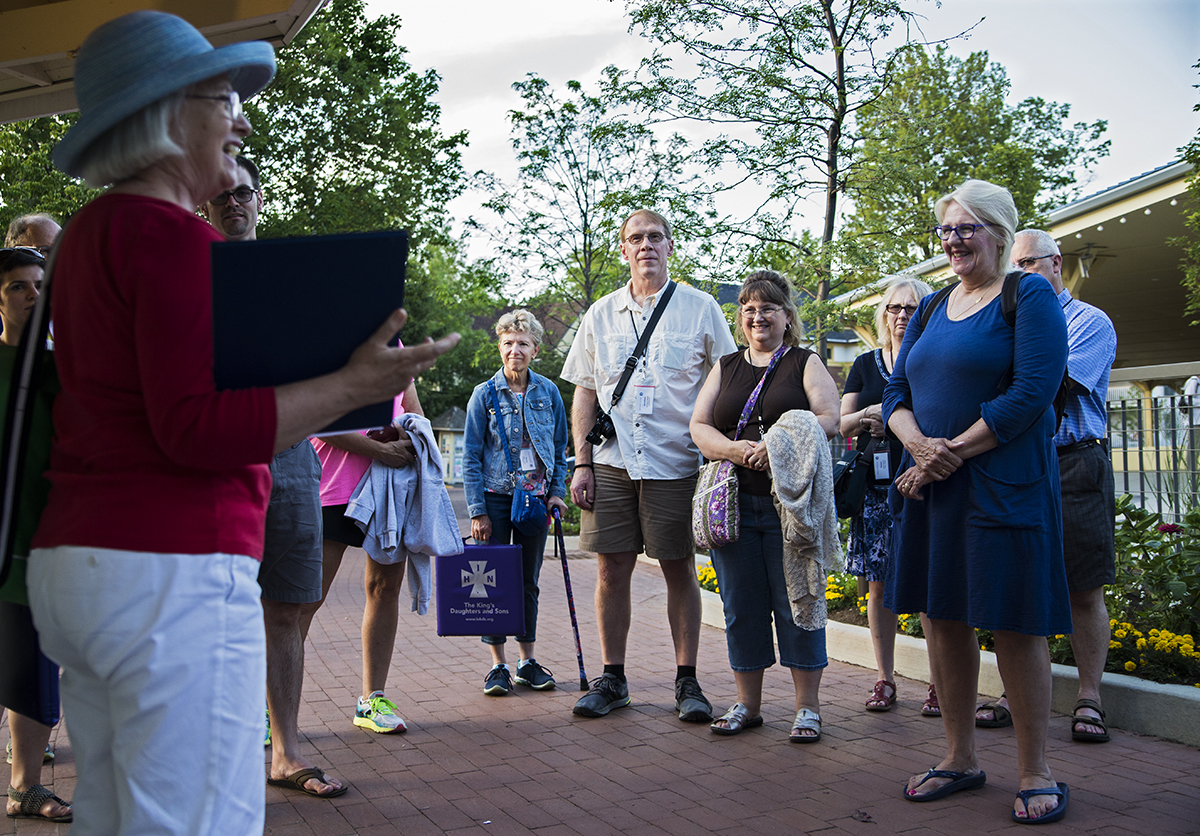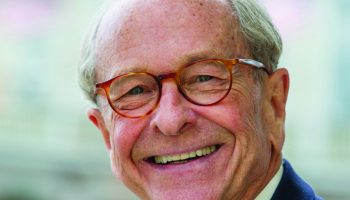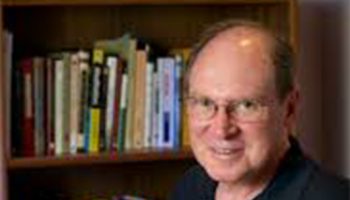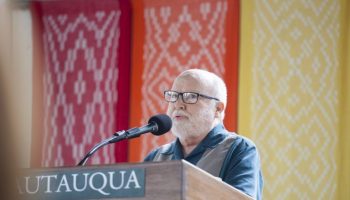Our faith leaders do more than give sermons on the weekends.
They are often on call 24/7 to be on the frontlines when tragedy strikes a member of their congregation. Clergy have to do emotional triage — interpreting the voice of God at a time when some may be questioning his existence. They also bring communities together when they are torn apart.
Programs at Chautauqua Institution are trying to help clergy through these trials by preparing and developing them in a restorative environment.
Program organizers said that in a time of religious and societal upheaval, helping clergy be better guides for their communities is critically important. The unique nature and the parallel goals of the Department of Religion have been key to the success of these programs.
“Life is challenging. Life is challenging and all of life’s challenges become intensified or multiplied in ministry,” said Maureen Rovegno, associate director of religion.
There are three programs at the Institution that are dedicated to working with clergy. Two are run by the Department of Religion — the Chautauqua Clergy Leadership Program and the Interfaith New Clergy Program. The other is co-sponsored by the department but run by the International Order of the King’s Daughters and Sons called the Clergy Renewal Week, which is concluding now at the end of Week Six.
Beth Fanta, IOKDS spiritual life director, said one of the organization’s members was inspired to develop their program 11 years ago after seeing congregational conflicts plague her own minister. IOKDS, which is headquartered at Chautauqua, provides active clergy who have never been to the grounds before with a weeklong stay at one of the IOKDS houses, with paid gate passes and numerous free meals.
“We want to give them a chance not to be the one in charge, not to be the minister, but to let us give them a gift of radical hospitality,” Fanta said.
Although this is her first year as director of the program, Fanta spent years as a volunteer hostess and has seen the stress melt away from faith leaders who have stayed with her. She said they often tell her that they appreciate the chance to have a completely open schedule and enjoy forming a community with the other participants.
Deacon Christine Jannasch, a pastoral assistant and chaplain in Ottawa, Canada, said being able to talk about the lectures and events at Chautauqua with the other clergy in her house at the end of the day was one of the most memorable parts of the experience. She said she was impressed by the variety at Chautauqua and was surprised by some of the things she liked, including the 2016 Week Six theme, “The Future of Cities.”
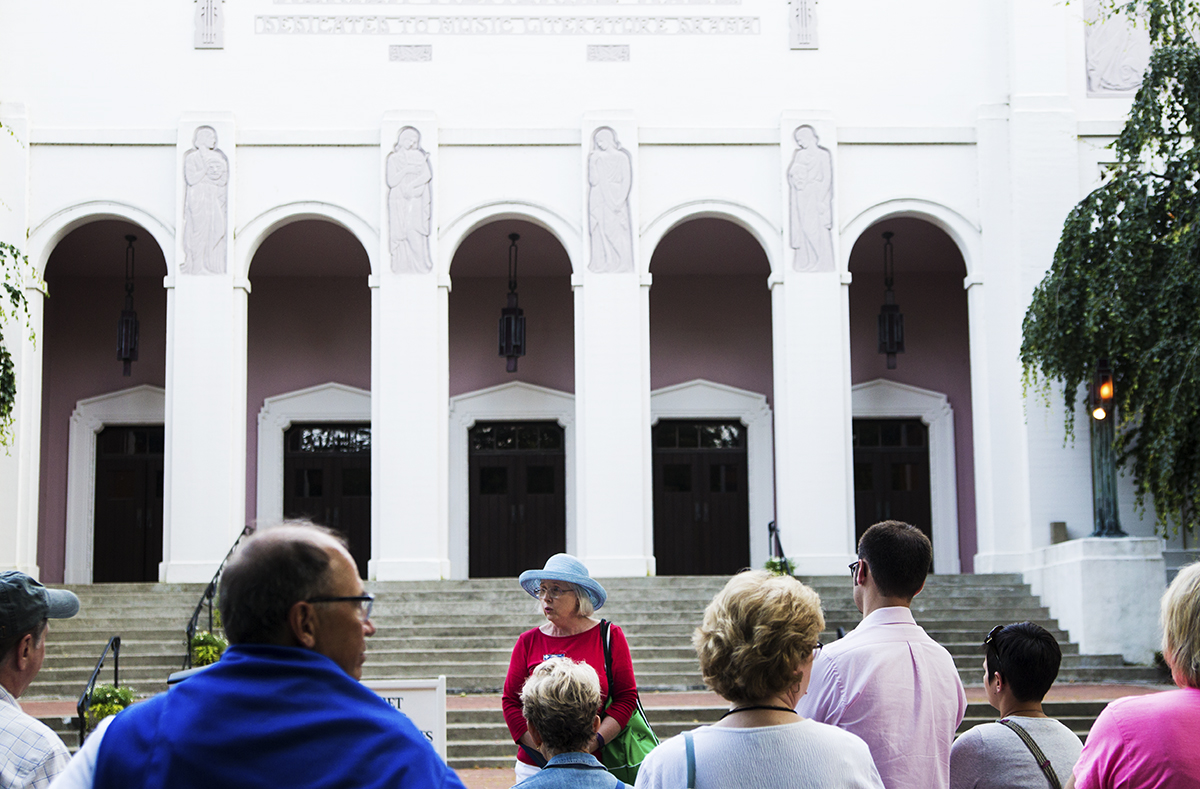
Jannasch, who participated in the IOKDS program last year, enjoyed her time at Chautauqua so much that she wrote a personal essay about it for her local religious magazine. She opened it by describing the serenity of Chautauqua. Fanta said that is what many of the clergy she accepts into the program really want — a serene place to put their feet up for a moment.
That is exactly what the Rev. David Darrow, a participant in this year’s IOKDS group, said he was looking for during his week at Chautauqua. Darrow, the pastor at Central Presbyterian Church in Paris, Texas, is the leader of a small, older congregation and said he often deals with death and extreme illness of his members, who feel more like family.
Darrow said he has been in ministry for 22 years, but this is the first opportunity he has had to participate in any program like this one.
“Clergy are so giving, but if you just give yourself until you burn out, you’ll have nothing left to give,” Darrow said.
Program organizers at Chautauqua said they want to prevent burnout among clergy as much as they can. While statistics about clergy retention are limited — most studies focus on a small subset of a denomination — all of those involved with the Chautauqua programs provided anecdotal evidence. Like Darrow, they said clergy are leaned on during the most difficult moments their churches and communities face.
The Institution-led programs, the Chautauqua Clergy Leadership Program and the Interfaith New Clergy Program, focus on preparing clergy for — and supporting them through — these moments.
“It’s that grassroots level of interpersonal relationships where faith is developed, enhanced and strengthened,” Rovegno said.
New Clergy, an interfaith program, focuses on the period between the first two to seven years of ministry, the time Rovegno said clergy are most vulnerable to burnout. That program brings on a new cohort for a week every summer. Clergy Leadership, however, works with more experienced clergy over the course of two years to bring their leadership skills to the next level.
Exposing clergy to the religious trailblazers that come to Chautauqua is what gives the Institution an edge over other similar programs. The Rev. Derek Austin, project director for clergy development, said this helped the Institution earn a grant from the Lilly Endowment, a major religious foundation, to develop the Clergy Leadership Program.
Austin said he has seen incredible stories unfold under both programs, although Clergy Leadership is only three years old. One includes the first African-American and female pastor of a majority white church in West Virginia, who Austin said was facing extreme strains in the position. She had been put there for political reasons, not for the good of the church, and it was obvious.
“She, at the end of the two years, could challenge her own denominational leaders on issues like that,” Austin said.
The ability to challenge the status quo in the years to come will be critical for clergy. As Chautauquans have been told numerous times this summer, the landscape of religion is changing in the United States, and clergy will have to lead the way if their congregations want to survive. Austin said that clergy are going to have to learn how to lead communities that are increasingly unaffiliated with a single faith.
“Pastors that are going to succeed in their work with churches have to figure out how to engage in collaborative relationships with other faith leaders,” Austin said.
These programs fit well into the community-building mission of the Institution and the Department of Religion. Rovegno described them as another example of a “pocket” of community on the grounds.
Austin said that in his experience, the support groups developed in the Chautauqua programs have gone so far as to change the minds of people who had already decided to quit ministry.
“Both of these programs offer them the opportunity and the potential to invest themselves in peer support, resource and accountability groups,” Austin said. “It’s up to them to do it, but I try to facilitate the program in such a way that it invites them to create that for themselves.”


